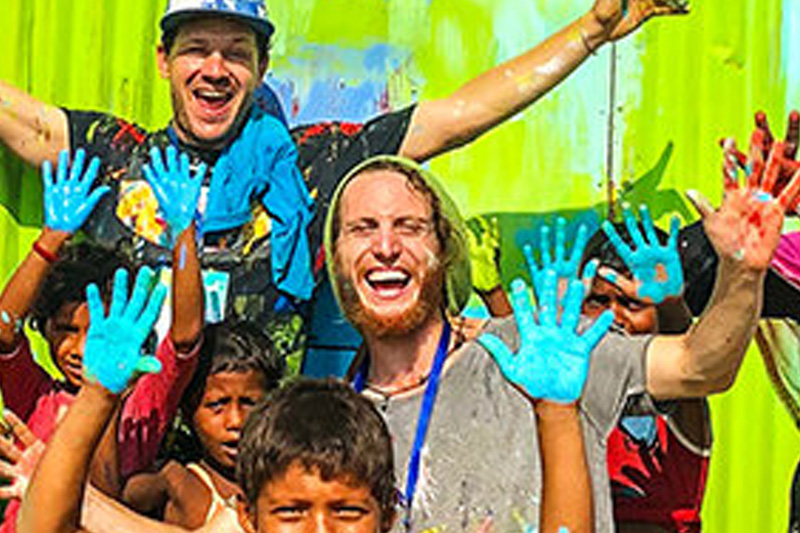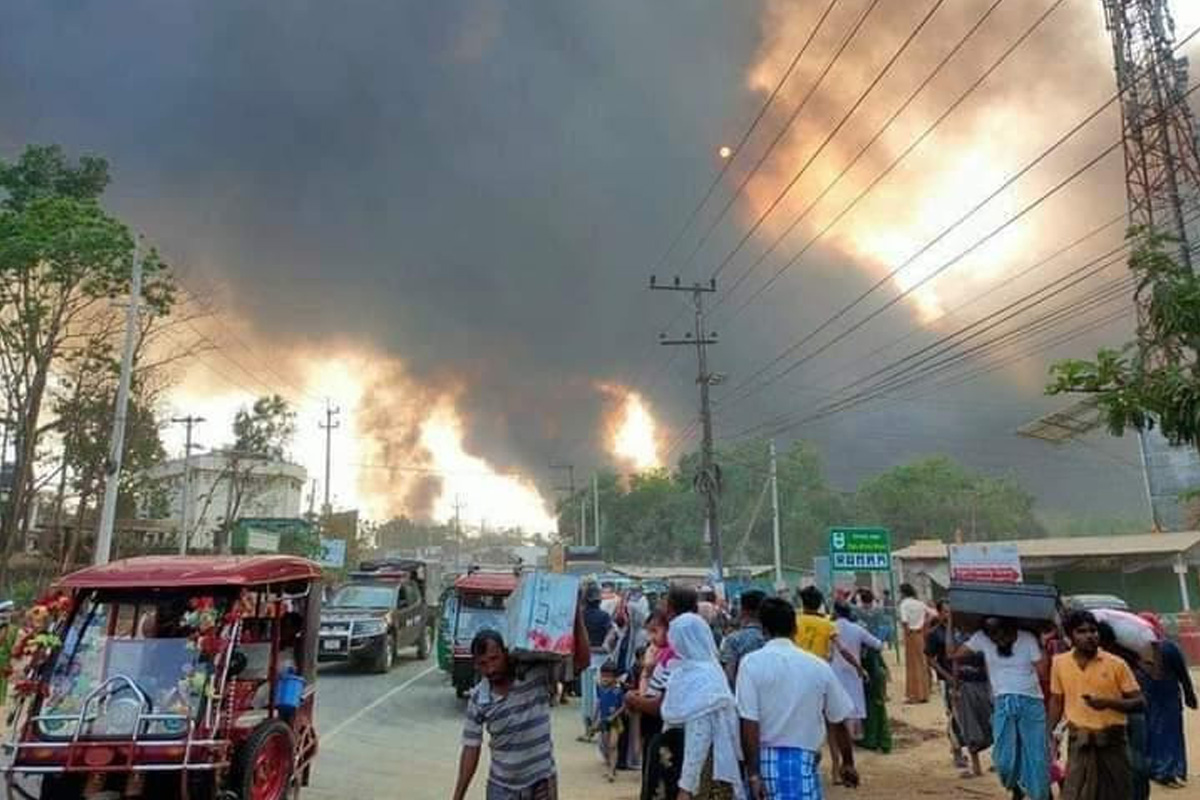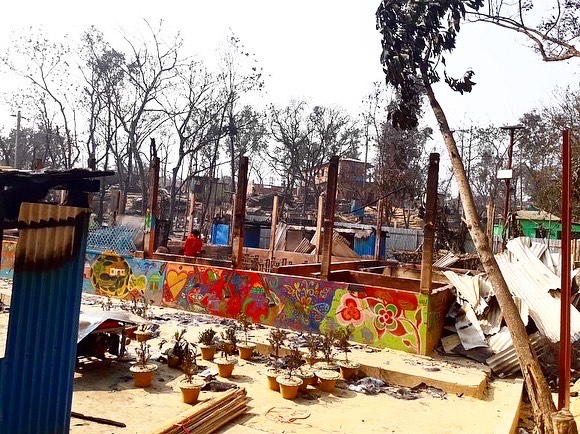It was a moment of celebration for Artolution and its co-founder, Teachers College Art & Art Education alumnus Max Frieder (Ed.D. ’20): a full-length story published this past Sunday in The New York Times that detailed the nonprofit's years of work In Rohingya refugee camps in Bangladesh. There, as the Times’ Patricia Leigh Brown described it, a team of Rohingya visual artists and musicians have been using “the power of the paintbrush” to create culturally relevant messaging around issues of human rights, gender-based violence, host-refugee relations and — especially critical right now, in light of the COVID crisis — public health.
Then tragedy struck. On Monday, a massive fire devastated the Balukhali region of the Kutupalong camp in Cox's Bazar in southern Bangladesh, killing at least a dozen people, leaving 50,000 homeless and destroying two major hospitals. Several hundred residents in the camp are still missing.
“People are literally just sitting in the ashes. The relief workers are trying to distribute tents. The transit centers are all filled, so people are lying in the street or in the burnt camp,” said Frieder, reached at his New York City apartment, from which he has worked since the pandemic began. “These are people who went through a genocide and were horrifically displaced — often seeing their homes burned down — and now comes this fire that devastates everything they’ve rebuilt and displaced them again.”
These are people who went through a genocide and were horrifically displaced — often seeing their homes burned down — and now comes this fire that devastates everything they’ve rebuilt and displaced them again.
—Max Frieder (Ed.D. ’20), Co-Founder, Artolution
Frieder said his first concern was for the safety of Artolution’s 20 full-time Rohingya artists who live in the camp and their families. At least two of the artists lost their homes and all their possessions, and currently are also missing members of their families. Frieder has not yet been able to establish contact with several others. In addition, three centers constructed by Artolution that provide safe spaces for women and children were destroyed.

IN HAPPIER TIMES Max Frieder and Artolution are reeling from the events in Bangladesh, but are still finding hope in efforts to rebuild. (Photo: Artolution)
“We’re looking to help our team members and their families, and to create a boots-on-the-ground trauma relief program, especially for children,” Frieder said. “We’re trying to get permission to paint some of the buildings that were left standing, to bring some color out of the ashes.” And a subsequent mailing from Artolution declared that “in response to these tragic events, our team of artists has communicated that they wish to be a part of the response that supports the children and families in their community who have faced the trauma of displacement and now have lost everything again. Together, we will work with our Rohingya artists, their families, and our partners to help rebuild their communities from the ashes and help to heal this pain.”
Our team of artists has communicated that they wish to be a part of the response that supports the children and families in their community who have faced the trauma of displacement and now have lost everything again. Together, we will work with our Rohingya artists, their families, and our partners to help rebuild their communities from the ashes and help to heal this pain.
—Artolution statement following the fire in Kutupalong Refugee Camp in Bangladesh
It was clear that Max Frieder and Artolution were also reeling from the disastrous turn of events.
“It’s this crazy juxtaposition — first we get this unbelievable New York Times article, with all this positive publicity, and then the next day, this devastating fire,” he said. But in an Instagram posting, he also sounded a note of hope.
“This all happened on the same day that the artists read the [New York Times] article for the first time, and they said it affected them so much more, not to give up hope, in the face of such a hopeless sea of pain,” he wrote. “That single droplet of healing and light means the world to this community, in more ways than we can know.” —Joe Levine
To learn more about Artolution and the Rohingya — including how you can help at this time — please visit the Artolution website.




